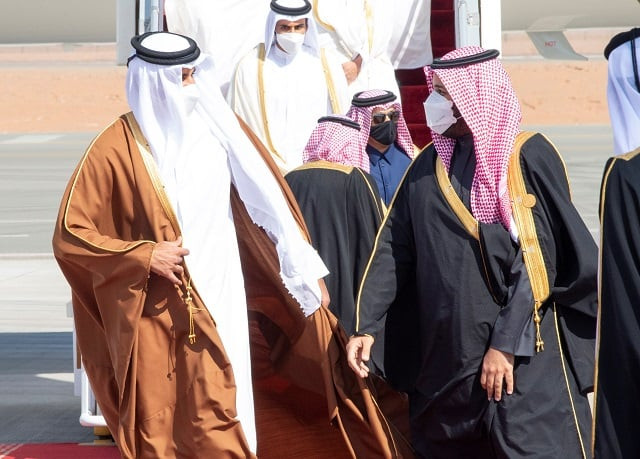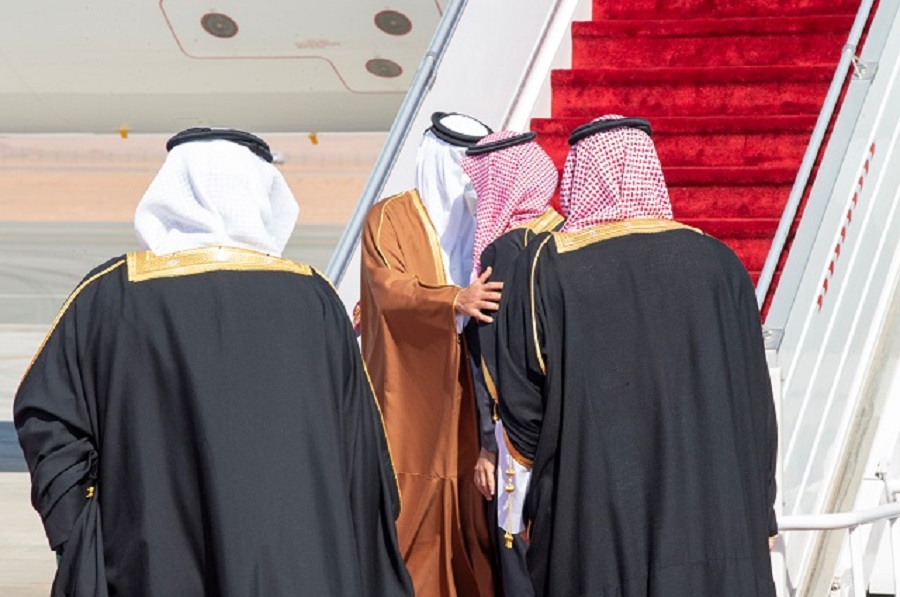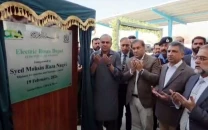Riyadh, allies agree to restore ties with Qatar, says Saudi FM
There is ‘political will and good faith’ to guarantee implementation of the deal, says FM Faisal bin Farhan

Embracing Qatar’s ruler, Saudi Arabia’s Crown Prince pushed a deal to end a bitter row with Doha at a Gulf Arab summit on Tuesday to try to shore up an anti-Iran front, although a final declaration contained only a general pledge of solidarity.
Saudi Arabia’s Crown Prince Mohammed bin Salman embraced Qatar’s Emir Sheikh Tamim bin Hamad al-Thani on the airport tarmac in the historic city of al-Ula, an important signal of hopes to end a long-running dispute ahead of a Gulf Arab summit https://t.co/GAPiq0Bb9H pic.twitter.com/sKQNqi4A2P
— Reuters (@Reuters) January 5, 2021
The kingdom’s foreign minister said Riyadh and its Arab allies agreed to restore ties with Doha to end a boycott imposed in mid-2017 and strengthen a Gulf Arab alliance against Tehran.
While the communiqué contained no detailed confirmation of a deal, the apparent breakthrough signalled hope for mending a rift between major US allies two weeks before President-elect Joe Biden takes office and at a time of regional tensions with Iran.
“There is political will and good faith” to guarantee implementation of the deal, Foreign Minister Faisal bin Farhan al-Saud told a news conference, saying the United Arab Emirates, Bahrain and Egypt had all agreed to restore ties with Doha.
The apparent deal followed mediation efforts by the United States and Kuwait, and a US official said on Monday Qatar would suspend legal cases related to the boycott under the emerging deal.
Ahead of the gathering in the historic city of al-Ula, which was also attended by White House senior adviser Jared Kushner, Kuwait anounced that Saudi Arabia would reopen its airspace and borders to Qatar. The other three nations have yet to announce similar moves.
Saudi Crown Prince Mohammed bin Salman and Qatar’s emir, Sheikh Tamim bin Hamad al-Thani, hugged at the airport tarmac before heading to the summit venue in a mirrored building reflecting the desert landscape.

Saudi de facto ruler Prince Mohammed, who chaired the short event instead of his father King Salman, said the al-Ula agreement “confirms Gulf, Arab and Islamic unity and stability”.
He also called for serious action by the global community to address a threat he said was posed by Iran’s nuclear and ballistic missile programmes and its “subversive and destructive plans”.
Saudi Arabia, the UAE, Bahrain and Egypt severed diplomatic, trade and travel ties with Qatar over allegations Doha supports terrorism, a charge it denies.
Working the phones
US President Donald Trump’s administration has been pushing for a resolution to the dispute that Washington sees as hindering efforts to contain Iran.
Kushner, tasked by Trump, his father-in-law, to work on ending the rift, was making phone calls on the emerging deal until the early hours of Monday, a US official had said.
Diplomats and analysts said Riyadh was also pushing reluctant allies to show Biden that the kingdom is open to dialogue. Biden has said he will take a harder line with the kingdom over issues including its human rights record and the Yemen war.
“This (deal) is seemingly influenced by a desire to pre-empt pressure from an incoming Biden administration, more than a genuine commitment to conflict resolution,” said Emadeddin Badi, nonresident senior fellow at Atlantic Council.
“The détente within the GCC is very unlikely to significantly affect geopolitical dynamics beyond the Gulf.”
All the states are US allies. Qatar hosts the region’s largest US military base, Bahrain is home to the US Navy’s Fifth Fleet, and Saudi Arabia and the UAE host US troops.
Qatar says the boycott aims to curb its sovereignty.
The other countries had set Doha 13 demands, including closing Al Jazeera TV, shuttering a Turkish base, cutting links to the Muslim Brotherhood and downgrading ties with Iran.



















COMMENTS
Comments are moderated and generally will be posted if they are on-topic and not abusive.
For more information, please see our Comments FAQ